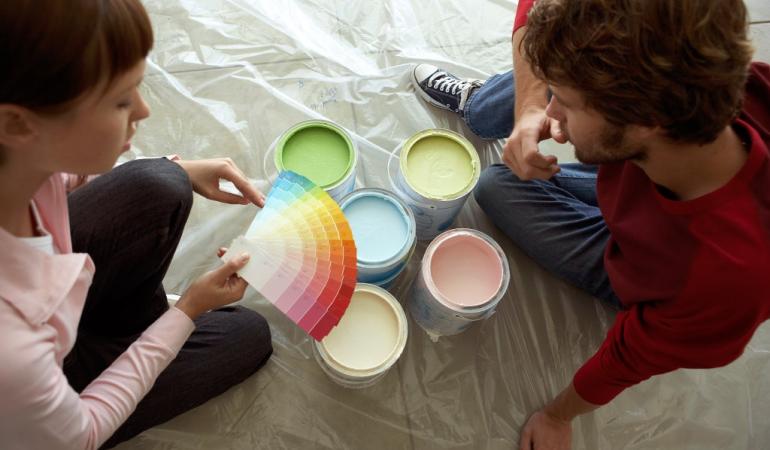
Companies and organisations in the paint sector are aware that microplastics can cause problems as these particles end up in the environment where they persist and may be harmful to plants and animals. Research carried out by RIVM shows that stakeholders in the paint sector do not actively try to reduce the microplastic emissions. RIVM has therefore explored the options to reduce the use of microplastics in paints and emissions of these substances to the environment.
Indirect measures to reduce emissions
The paint sector has taken indirect measures to reduce the emission of microplastics by, for example, developing paint with a longer lifespan which will last twice as long. The sector also indicates that professional painters take measures to reduce the emissions of paint particles and dust during their work. For instance, they use a device to collect the dust and debris whenever they sand off old paint. It is not known whether do-it-yourselfers take similar measures or whether this is even possible. Do-it-yourselfers are more likely to wash water-based paint out of their brushes under the tap too. This is undesirable because microplastics in the paint end up in the environment in this way.
Paint and microplastics
Stakeholders in the paint sector indicate that microplastic emissions cannot be prevented. Polymers are necessary to produce layers of paint which cover surfaces and provide long-term protection. There are still only a few paint products which do not contain polymers and these are not yet suitable for all paint applications. Microplastics are very small particles, comprising polymers, which can be added to products, such as paint. These are known as ‘primary microplastics ’. Microplastics can be released when dry paint layers weather or are sanded. These are known as ‘secondary microplastics’.
More data
The quantities of microplastics emitted during the production, use and disposal of paints are not yet clear. More data is required if measures are to be taken. Also, analytical measurements could, for example, be performed in the environment. It is, furthermore, important for all actors in the paint sector to work on measures to reduce microplastic emissions.